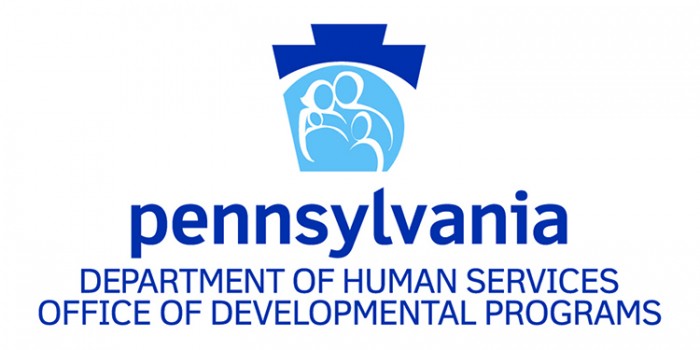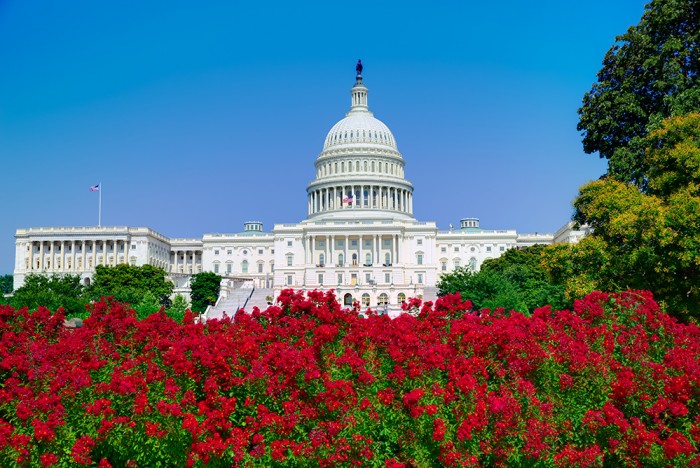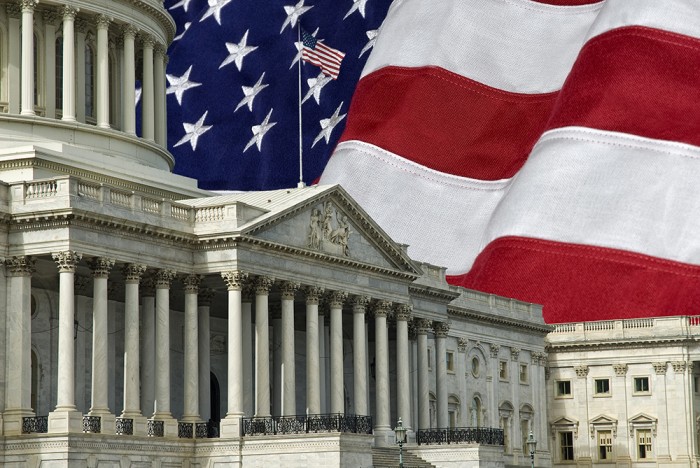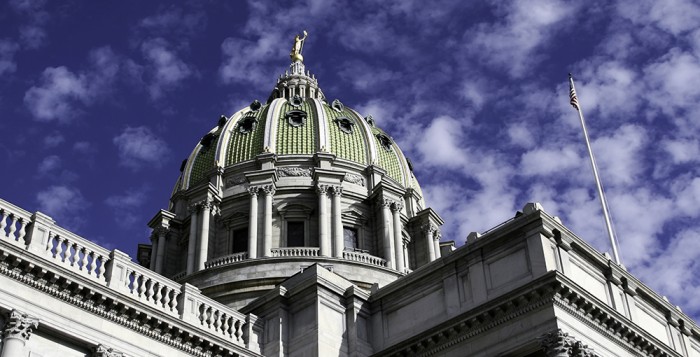Upon RCPA’s request, Governor Wolf signed the proclamation announcing September 9–15, 2018 as “Direct Support Professionals Recognition Week,” to recognize and express appreciation to the DSPs throughout the Commonwealth. See the proclamation here.
Deputy Secretary Nancy Thaler Announces Retirement
Nancy Thaler, Deputy Secretary of the Office of Developmental Programs (ODP), has announced her retirement effective August 31, 2018. Secretary Thaler has served as the Deputy Secretary since June 2015. Previously, Thaler was Executive Director of the National Association of State Directors of Developmental Disabilities Services. She also previously served as the Director of Quality Improvement for the Center for Medicare and Medicaid Services (CMS). Deputy Thaler served the Commonwealth in the Department of Public Welfare (now DHS) from 1986 to 2003, first as Director of the Bureau of Community Programs, then as Deputy Secretary for the Office of Developmental Programs. During her tenure as Deputy Secretary, she advanced the philosophy of “Everyday Lives,” confirming the right of people with disabilities to live an everyday life; a life that is no different from that of all other citizens. Secretary Thaler has always demonstrated the utmost respect for people with disabilities, promoted full inclusion in the community, and has been referred to as a “champion for individuals with disabilities in Pennsylvania.”
Kristin Ahrens, Director, Bureau of Policy and Quality Management will serve in the role of Acting Deputy Secretary upon Secretary Thaler’s retirement. Ahrens has served in her current position since July of 2016. She has been instrumental in developing the ODP waivers and has been responsible for policy development, training, quality, and communications for the past two years. Prior to her appointment at ODP she served as the Policy Director at Temple University, where she was responsible for directing all policy-related activities for the institute, including policy analysis; training and technical assistance to staff, community groups, and policymakers; and creating and/or disseminating briefs on local, state, and federal policy issues that affect people with disabilities and families. Ahrens also provided consultation to ODP on fiscal policy and the HCBS settings rule, served on the Adult Protective Services Coalition, Disability Budget Coalition, DHS Regulatory Revision Work Group, and Association for University Centers Legislative Affairs Committee. She also has experience in Person-Driven Services, including her work at Self Determination Resources (SDRI) for six years, where she was instrumental in the growth of SDRI from a pilot project to a fully operational model brokerage which was replicated statewide. In addition, Ms. Ahrens served as a consultant on the Substance Abuse and Mental Health Services Administration (SAMHSA) Transformation Transfer Initiative for building sustainable self-directed services in PA’s mental health system.
We wish Deputy Secretary Thaler well in her retirement and look forward to continuing collaborative work with Kristin Ahrens in her new role at the Office of Developmental Programs.
Wolf Administration to Host a Health Care in the Community Event
EVV Implementation Delayed
On July 30, 2018, President Trump signed HR 6042 which delays the requirement for personal care service providers to utilize an electronic visit verification (EVV) system. This action changes the deadline by one year, to become effective January 1, 2020. HR 6042 was signed into law in order to delay reduction in the Federal Medicaid Assistance Percentage (FMAP) for personal care services furnished without an EVV system, and also requires more stakeholder input into the implementation process. For questions, contact Carol Ferenz, RCPA IDD Division Director.
Anniversary of the Americans with Disabilities Act
July 26 marked the 28th Anniversary of the Americans with Disabilities Act (ADA), signed into law in 1990 by President George Bush. The White House released the following proclamation:
THE WHITE HOUSE
Office of the Press Secretary
FOR IMMEDIATE RELEASE
July 25, 2018
Anniversary of the Americans with Disabilities Act, 2018
By the President of the United States of America
A Proclamation
On the 28th anniversary of the Americans with Disabilities Act (ADA), we celebrate this historic legislation, which echoed our Nation’s founding promise to recognize and secure the equal rights of all men and women. Today, we reaffirm our commitment to cultivate further opportunities for all Americans to live full and independent lives, and recognize the many contributions enabled by expanded participation of Americans with disabilities in our society.
President George H.W. Bush signed the ADA into law on July 26, 1990. It has transformed the lives of millions of Americans living with disabilities by promoting their equal access to employment, government services, public accommodations, commercial facilities, and public transportation. Today, people of all ages with disabilities are better able to thrive in the community, pursue careers, contribute to our economy, and fully participate in American society.
Our Nation must continue to build upon this foundation and continue to further the participation of the more than 56 million Americans living with disabilities. My Administration continues to encourage research that will lead to advancements in technology, medicine, and other fields and better enable independent living. We are also expanding and promoting equal education and employment opportunities for Americans with disabilities to live and work. In this regard, in June of last year, I signed an Executive Order to develop more apprenticeship programs for all people, including those with disabilities. Additional training will encourage better involvement from businesses and allow people with disabilities to contribute meaningfully to a wide variety of industries.
As we commemorate the anniversary of the ADA, we recommit ourselves to fostering an environment in which all Americans have the opportunity to pursue the American Dream.
NOW, THEREFORE, I, DONALD J. TRUMP, President of the United States of America, by virtue of the authority vested in me by the Constitution and the laws of the United States, do hereby proclaim July 26, 2018, as a day in celebration of the 28th Anniversary of the Americans with Disabilities Act. I call upon all Americans to observe this day with appropriate ceremonies and activities that celebrate the contributions of Americans with disabilities and to renew our commitment to achieving the promise of our freedom for all Americans.
IN WITNESS WHEREOF, I have hereunto set my hand this twenty-fifth day of July, in the year of our Lord two thousand eighteen, and of the Independence of the United States of America the two hundred and forty-third.
DONALD J. TRUMP
National Disability Voter Registration Week / REV UP
Governor Signs Executive Order Increasing Minimum Wage for State Workers
Harrisburg, PA – Building on his commitment to create Jobs That Pay as Pennsylvania’s economy continues to expand, Governor Tom Wolf today signed an executive order that increases pay for employees under the governor’s jurisdiction to no less than $12 an hour on July 1, 2018 and raises the wage by 50 cents a year until reaching at least $15 per hour in 2024.
“Pennsylvania must be a place where hard work is rewarded, but today too many people cannot afford the basics,” said Governor Wolf. “This executive order increases the wage floor for state workers and state contractors, but the General Assembly has not given all minimum wage workers a raise in nearly a decade. More than half of the states have a higher minimum wage, including all of our surrounding states, leaving many Pennsylvanians behind. Raising the wage puts more money in their pockets which generates business for our economy and makes the commonwealth stronger. Hardworking men and women should not have to wait any longer. It’s time for the General Assembly to join me and raise the wage.”
Workers in Pennsylvania earning the minimum wage of $7.25 an hour have only 26 percent of the purchasing power they did in 1979. A family of two working full-time and earning minimum wage falls below the poverty line. Increasing the minimum wage is a win-win for workers and the economy. Boosting wages provides workers with more income to purchase items they most need, which generates business for the local economy and reduces costs for state services.
The governor’s executive order also covers employees of state contractors, those that lease property to the commonwealth, and employees that perform direct services to the commonwealth or spend at least 20 percent of their working time on ancillary services related to the contract or lease. After reaching $15 an hour in 2024, the minimum wage rate would increase by an annual cost-of-living adjustment using the percentage change in the consumer price index for all urban consumers for Pennsylvania, New Jersey, Delaware, and Maryland.
The current wage floor for employees is $10.20 an hour under an executive order signed by the governor in March 2016.
Questions, contact RCPA Director of Government Affairs Jack Phillips.
Governor Wolf Announces Renewal of Opioid Disaster Declaration
Governor Wolf Announces Renewal of Opioid Disaster Declaration, Passage of Legislation to Aid in Crisis
Pennsylvania’s School Safety Task Force Update
Editorial: Lend your feedback to the Pa. School Safety Task Force
RCPA is encouraging our members to take this opportunity to provide Governor Wolf and Auditor General Eugene DePasquale with input about what state officials and the mental health community should do to improve school safety. The task force, led by Governor Wolf and Auditor General DePasquale, is compiling a report due later this year.
The Task Force’s mission is to evaluate issues such as funding for school safety, access to physical and mental health support, effectiveness of state requirements for training and security, how well safety issues are reported, and whether precautions like anonymous tip tools are in place. The Pennsylvania School Safety Task Force was formed after the Feb. 14 shooting in Parkland, Florida.
Please use this link to submit feedback.
Scaled-down fiscal code includes school safety funding transfer, big money for CHC
Scaled-down fiscal code includes school safety funding transfer, big money for PA’s Community HealthChoices program.
By Chris Comisac
Bureau Chief
Capitolwire
HARRISBURG (June 22) – This year’s state budget fiscal code – which directs how money appropriated by state lawmakers is to be spent – is trimmer than it has been in many past years.
The actual language of this year’s code totals just 45 pages; it was amended into House Bill 1929 by the Senate early Friday afternoon, and later approved by both chambers of the General Assembly and signed by Gov. Tom Wolf.
While there are plenty of pages covering the usual spending dictation found in any budget fiscal code, there are several new items included this time around.
The Keystone Scholars Grant Program, which was also proposed as a stand-alone bill (Senate Bill 1130), would be created by language within HB1929 on pages 8 through 13.
As part of the program, the State Treasurer is authorized to deposit $100 into a PA 529 account with the stated intent to grow the deposit with interest during the youth of the child and provide the incentive for parents to open their own PA 529 account. The program will be funded through Treasury investment earnings, donations and endowments from the philanthropic community.
According to the Senate Appropriations Committee, 140,000 children are born each year in Pennsylvania. The language within HB1929 would cap the transfer from the Tuition Account Guaranteed Savings Program Fund (PA 529) to the Keystone Scholars Grant Account at $14 million in any fiscal year.
On page 13 of the bill, there are provisions to create a new definition for “lost contact,” with regard to the state’s disposition of abandoned and unclaimed property, so that shares of stock reported to the Pennsylvania Treasury are only those that have truly been abandoned and unclaimed, not merely held in a passive investment account.
The changes to the criteria, which are also contained in House Bill 2167, are anticipated to result in a 10 percent reduction of the state’s net revenue from unclaimed property, to about $68 million.
Like last year, the state is expecting money from the Volkswagen Group of America settlement, which the car company is paying after allegations arose that it was cheating on U.S. Environmental Protection Agency emissions tests.
Language on page 15 of HB1929 would ensure that when it’s received, $30,409,005 from the settlement with be deposited into the General Fund.
On page 20 of the bill, $45 million in transfers to the Business in our Sites Program account are authorized: $10 million from the First Industries Program account, $35 million from the Building Pennsylvania program.
Language from House Bill 431 is also included in the fiscal code, on page 20, creating the Private Dam Financial Assurance Program.
Under that program, a one-time $1,000 fee and an annual fee of 1 percent of the bond amount required by the Department of Environmental Protection shall be deposited into the Private Dam Financial Assurance Fund, with the fees available to be used to establish a revolving loan program to provide maintenance and repair assistance once the fund’s balance is equal to or greater than $1.5 million.
The Rainy Day Fund is supposed to get its first deposit since before the Great Recession, and the fiscal code, on page 26, increases the amount to be transferred to the fund from 25 percent to 50 percent of any surplus in the General Fund for fiscal year 2017-18, which is estimated to provide an additional $9.9 million to the fund.
Water and sewer projects are to get some extra funding – $35 million in total – as part of language found within the fiscal code on page 27.
That funding – to be made available for water and sewer projects with a cost of not less than $30,000 and not more than $500,000 – comes by way of $10 million coming from funds available to the Commonwealth Financing Authority (CFA), as well as a $25 million transfer from the First Industries Program.
Like many other fiscal codes, this one alters the distribution of Tobacco Settlement Fund payments (on pages 28 through 30):
*4.5 percent for tobacco use prevention and cessation programs ($15,539,000);
*12.6 percent for health and related research under Section 906 of the Tobacco Settlement Act ($43,509,000);
*1 percent for health and related research under Section 909 of the Tobacco Settlement Act ($3,453,000);
*8.18 percent for the Uncompensated Care Payment Program ($28,246,000);
*30 percent for the purchase of Medicaid benefits for workers with disabilities ($103,594,000); and
*43.72 percent shall remain in the fund to be separately appropriated for health-related purposes ($150,786,000).
In addition to $351,815,000 distributed for health-related programs during FY2018-19, there’s a one-time $15.4 million transfer to the Office of Attorney General Criminal Enforcement Restricted Account for criminal enforcement – this money comes from the recently announced settlement reached by the Attorney General and tobacco companies that, according to the Office of Attorney General, will deliver a one-time amount of $357 million to Pennsylvania.
The notable difference between this year’s disbursements and last year’s fiscal code tobacco funding disbursements is last year 13 percent of the funding was devoted to home- and community-based services; this year, other than $15.4 million transfer to the Attorney General, the remainder of that one-time settlement windfall (Roughly $341.6 million) will be used for the state’s Community HealthChoices program, Pennsylvania’s mandatory managed care program providing home- and community-based care for individuals who are eligible for both Medical Assistance and Medicare (dual eligibles), older adults, and individuals with physical disabilities.
The other difference is 43.72 percent of this year’s funding will go to health-related purposes that are separately appropriated; last year’s fiscal code directed 30.72 percent to that purpose.
Just as the distribution of tobacco settlement funds can be found in every fiscal code, so are distributions from the Pennsylvania Race Horse Development Fund.
On pages 32, 34 and 35 of HB1929 are provisions that transfer from the fund $19,659,000 (in 22 weekly installments) for agricultural-related programs, and another $10,066,000 for enforcement of medication rules and regulations in FY2018-19.
The fiscal code, on page 35, also transfers $2.5 million from the sale of liquor and alcohol to the Department of Drug and Alcohol Programs.
Clarifications regarding the state’s First Chance Trust Fund are spelled out on pages 35 and 36, requiring that when determining preference for student scholarships or programs that benefit children, the victimization of the student or child, the impact of crime on the student or child and the risk factors identified by the current policy statement, be the factors that are considered.
More funds distribution language is found on pages 38 and 39 of HB1929, with the provisions specifying that for the $20 fee collected for the issuance of death certificates by a local registrar, $3 shall be retained by the local registrar until the $60,000 threshold is met, after which fees will be transmitted to the Department of Health to be deposited in the General Fund. Of the remainder of that fee, $16 shall be deposited in the Vital Statistics Improvement Account and the other $1 is to be transmitted to the Department of Health for distribution to the county corner or medical examiner. With regard to the funding to be deposited into the General Fund, the Senate fiscal note offer no detail regarding the potential fiscal impact as it will be entirely dependent upon the demand for death certificates when there is a local registrar.
The code bill, on page 39, requires the amount of $7 million to be used to augment funds appropriated to the Bureau of Occupational and Industrial Safety, and the remaining funds – believed to be less than $1 million – to be transferred to the General Fund.
Funding for the Department of Labor and Industry’s Reemployment Fund is reauthorized through Sept. 30, 2022, on pages 39 and 40 of the code.
Five-percent of the unemployment compensation contributions paid by employees will be contributed to the fund, with those annual contributions expected $10 million in 2018, $10 million in 2019, $13 million 2020, $14 million in 2021, and $15 million in 2022.
In an effort to pump more money ($14 million, coming from the Property Tax Relief Fund) into the State Lottery Fund, HB1929 (on page 40) alters the definition of “income” with regard to the state’s Taxpayer Relief to exclude an amount equal to 50 percent of the average retired worker Social Security payment for a person who receives pension benefits from the Federal Civil Service Retirement System and was not required to make Social Security payments.
The bill, on page 41, also generates an additional $7.1 million for the state’s Access to Justice Account (which provides civil legal assistance to poor and disadvantaged Pennsylvanians) by imposing an additional $2 surcharge on all court filings, as authorized by last year’s fiscal code.
The funding for a new school safety program is transferred by the fiscal code (on pages 42, 42 and 75), ensuring that $60 million is deposited into The School Safety and Security Fund.
Of the $60 million, $30 million is transferred from funds restored from Gov. Tom Corbett’s FY2014-15 line item vetoes that were overturned by the courts late last year. Another $15 million is transferred from fines and fees collected by the Judiciary, with the last $15 million transferred from Personal Income Tax revenue.
The reinstatement of funding from those line item vetoes is spelled out on pages 44 and 45 of HB1929. With $30 million of the restored funds used for the school safety program, the code lapses the remaining $35.1 million.
Found on pages 42 and 43 of HB1929 is authorization for the state Transportation Secretary to waive, for good cause, the requirement for local matching funds as part of the Multimodal Transportation Fund, if the applicant for assistance is the Philadelphia Regional Port Authority (in addition to the existing allowance for municipalities. The match requirements for multimodal funding through the Commonwealth Financing Authority portion of the program are also waived for both, with all of the aforementioned provisions to expire on Dec. 31, 2019.
Pages 67 and 68 contain language providing $30 million annually for the Department of Revenue to administer its Enhanced Revenue Collection Account through FY2019-20.
The administration of the hybrid retirement plan created for the state’s two public pension plans get some funding through the fiscal code. On page 75, a total of about $10.1 million ($4.9 million for the State Employees’ Retirement System, and $5.2 million for the Public School Employees’ Retirement System).
And the dairy industry gets some additional support – $5 million – through the fiscal code, with pages 75 and 76 of HB1929 authorizing yet another transfer from the First Industries program to the Commonwealth Financing Authority for “research and development, organic transition, value-added processing and marketing grants.”
Some other odds and ends from the code:
*The Independent Fiscal Office this year, when it came time for the agency to do its initial and final revenue estimates, ran into some timing issues with regard to corporation tax collection information. Specifically, the collections in May came in later than the IFO expected, and in June, the IFO delayed their June 15 final revenue estimate until June 18 to ensure they captured the tax information. HB1929 (on pages 36 and 37) changes the IFO’s deadlines for the initial and final revenue estimates to May 20 and June 20, respectively, in hopes of addressing the issue going forward.
*Last year’s budget was delayed several months, with that delay preventing the state from re-implementing a moratorium on new applications to the state’s PlanCon program (which provides school districts with some financial help when the districts embark on construction projects). Because the moratorium was not reinstated until the FY2017-18 budget was completed, several school districts submitted PlanCon applications.
On page 43, HB1929 allows all districts that submitted PlanCon applications during the budget stalemate, and which proceed with construction before July 1, 2021, to “be awarded a one-time capital grant, if available, for the approved project in lieu of approved reimbursement payments or, if not available, shall receive payments in the form of reimbursements.”
According to Senate Appropriations Committee Majority Chairman Pat Browne, R-Lehigh, several of the school districts that submitted applications last year are suing the Department of Education for the money that would have been available through the old PlanCon program, and it’s hoped HB1929’s language will help to resolve that issue. Browne added that efforts will intensify during the next year to create a new PlanCon program, implementing recently-released recommendations to improve the process, which many lawmakers believe should occur before the General Assembly considers restarting the reimbursement program.
*On pages 16, 17 and 18, the cap on the number of qualified tours within the Concert Tours Tax Credit is increased from 5 to 10 in FY2018-19. The language also allows the Department of Community and Economic Development to, at its discretion, approve tax credits for two additional tours in FY2018-19, which would count as an advance award against the cap available in the next succeeding fiscal year.
*And pages 37 and 38 call for the Department of Conservation and Natural Resources to, in consultation with PennDOT and utilizing existing state roads and state forest roads, develop, open and maintain an ATV trail connecting with Sproul State Forest the Whiskey Springs ATV trail (in western Clinton County) to the Blood Skillet ATV trail (in northeastern Center County) by April 1, 2020; and by April 1, 2024, implement the full Northcentral Pennsylvania ATV initiative, creating a network of ATV trails connecting Clinton County to the New York State border, by utilizing existing state roads and state forest roads.
Questions, contact RCPA Director of Government Affairs Jack Phillips.


















